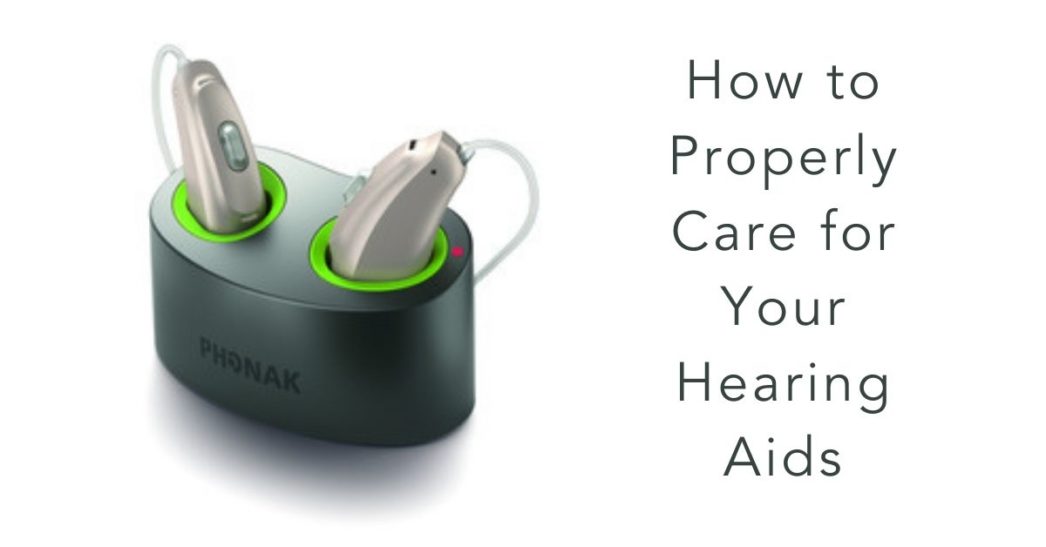Hearing aids are a big help in a tiny package, they offer high-performing digital sound processing and amplification in a device that tucks discreetly within or around your ear. If you live with hearing loss you know how much hearing aids can help you manage your hearing and improve your comprehension. You also probably recognize that your hearing aids are an investment in your health.
Like all investments, you want the best performance for the longest amount of time. When it comes to hearing aids, taking good care of them is the first step to maximizing the lifespan of your devices. Let’s take a look at the basics of caring for your hearing aids:
Daily Wipedown
When you remove your hearing aids for the night, wipe them down with clean hands and a clean cloth or paper towel. A simple daily wipedown can remove much of the moisture and debris that can cause problems when not dealt with.
In situations that may be sweaty or dusty, it is a good idea to wipe down your devices more frequently so particles and moisture are less likely to infiltrate your hearing aid and cause damage.
Frequent Observation
You’ll also want to give your hearing aids a frequent scan to look for anything out of the ordinary. Look for any signs of blockage or build-up – earwax and debris in the ear can easily get lodged in a device. Corrosion can occur if moisture goes undetected in the chambers of the device, such as the battery compartment. Frequent observation can detect irregularities before they cause serious damage.
Avoid Wax Build-Up
A simple hearing aid cleaning kit should include a wax pick or wax brush for dislodging blockages in the hearing aid. When earwax obscures the opening of a hearing aid it can distort or muffle sound and even cause a whistling in your device. Thoroughly remove waxy build-up from your hearing aid with the pick or brush whenever necessary.
Avoid Extreme Temperatures
Adverse conditions can limit the performance of your device and compromise the electronic components. Never leave your hearing aids in excessive heat – like a hot car in the summer. Similarly, avoid keeping your hearing aids in environments below freezing. A good rule of thumb is that if the temperature is too dangerous for your body, it is too extreme for your hearing aid.
Avoid Moisture
Your hearing aids are coated in protective compounds that resist water and moisture. This is a necessary aspect of hearing aid design – by nature they are located in the moist and sometimes sweaty environment of the ear canal. However, this moisture resistance doesn’t mean that they can’t be damaged by liquids, moisture and humidity. Your hearing aids should never be worn when swimming or bathing and need to be wiped down when they are exposed to incidental moisture such as light rain, sweat or being splashed. Moisture can cause certain components of your hearing aid to corrode and if it penetrated into the device may cause the electronics to short circuit.
Avoid Corrosion
Sometimes undetected moisture or bad batteries can cause components of your hearing aids to corrode. Look for corrosive build-up or discoloration especially around the battery compartment of your hearing aids. If corrosion is present it may start causing your hearing aids to malfunction.
Mild corrosion in the battery compartment can be usually scraped away by opening and closing the battery compartment several times. Be sure to also replace the battery when cleaning a corroded battery chamber. If you are uncertain about the origin of corrosion on your device, consult with your hearing specialist.
Daily Dehydration
In addition to drying your hearing aids immediately after any exposure to moisture, establishing a daily drying of your hearing aids will help maintain them for their maximum lifespan. Daily drying is easiest to do by storing your hearing aids in a small dehydration case when you remove them to sleep.
Hearing aid dryers and dehydrators can be either electronic or not. Electronic dryers blow dry air into the hearing aid to evaporate any moisture. Non-electric dryers usually rely on chemical desiccants that draw moisture out of their surroundings. Both types of dryers are equally effective ways to maintain your hearing aids.
If you are in need of routine care for your hearing aids, we’re here to help! We provide comprehensive hearing health services, from professional hearing aid cleaning and maintenance to hearing tests to hearing aid fittings. Contact us today!


